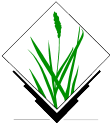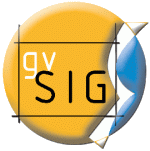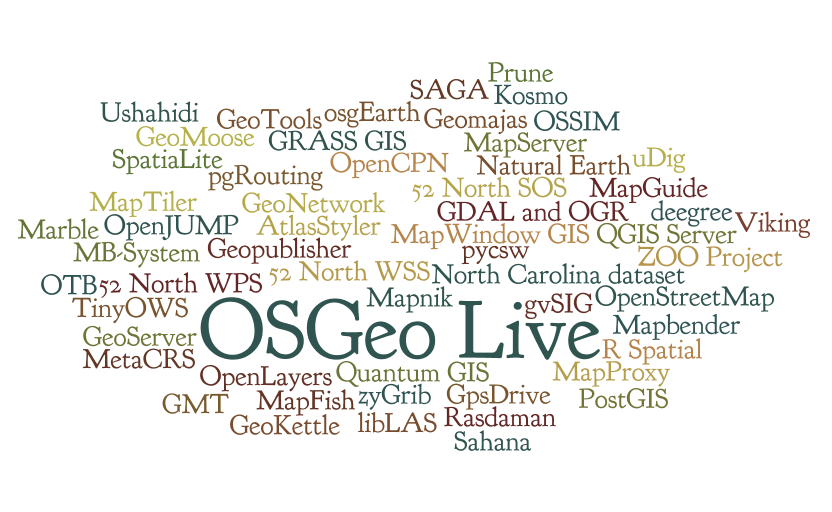Difference between revisions of "Google Summer of Code 2016 Ideas"
| Line 35: | Line 35: | ||
* ''More coming soon: Get started talking to your favorite project's development team today!'' | * ''More coming soon: Get started talking to your favorite project's development team today!'' | ||
| + | [[Image:logo-grass.png|60px|right]] | ||
| + | * [https://trac.osgeo.org/grass/wiki/GSoC/2016 '''GRASS GIS''' SoC Ideas]: [http://grass.osgeo.org GRASS GIS] is an open source GIS focusing on analysis, modeling and visualization. It is a collection of modules written in C and Python and has a GUI written in wxPython. If you know Python, or want to implement algorithms in C, take a look! | ||
| − | <!-- | + | <!-- |
| − | + | [[Image:logo-qgis.png|60px|right]] | |
| − | |||
| − | |||
| − | |||
* [http://hub.qgis.org/wiki/quantum-gis/Google_Summer_of_Code_2015 '''QGIS''' SoC Ideas]: [http://www.qgis.org QGIS] is a user friendly Open Source Geographic Information System (GIS) that runs on Linux, Unix, Mac OSX, and Windows. QGIS supports vector, raster, and database formats. It is written in C++ and Python.--> | * [http://hub.qgis.org/wiki/quantum-gis/Google_Summer_of_Code_2015 '''QGIS''' SoC Ideas]: [http://www.qgis.org QGIS] is a user friendly Open Source Geographic Information System (GIS) that runs on Linux, Unix, Mac OSX, and Windows. QGIS supports vector, raster, and database formats. It is written in C++ and Python.--> | ||
| − | + | <!-- | |
| − | <!--[[Image:logo-gdal.png|60px|right]] | + | [[Image:logo-gdal.png|60px|right]] |
* [http://trac.osgeo.org/gdal/wiki/SummerOfCode '''GDAL''' Ideas]: [http://www.gdal.org GDAL] is a C++ library for reading and writing geospatial data raster and vector formats.--> | * [http://trac.osgeo.org/gdal/wiki/SummerOfCode '''GDAL''' Ideas]: [http://www.gdal.org GDAL] is a C++ library for reading and writing geospatial data raster and vector formats.--> | ||
| − | |||
<!-- | <!-- | ||
* [http://trac.osgeo.org/osgeo4w/wiki/Reports '''OSGeo4W''']: - OSGeo4W is a binary distribution of a broad set of open source geospatial software for Win32 environments (Windows 7, XP, etc). | * [http://trac.osgeo.org/osgeo4w/wiki/Reports '''OSGeo4W''']: - OSGeo4W is a binary distribution of a broad set of open source geospatial software for Win32 environments (Windows 7, XP, etc). | ||
| Line 51: | Line 49: | ||
:* ''Idea'': We need to extend support to x64 based platforms to handle larger datasets and circumvent memory restrictions. This is a distribution and packaging project which will involve most/all of OSGeo member projects. (''ed. note: keep in mind that to fulfill GSoC requirements each project must have a majority coding component, so lots of scripting, testing, and Makefiles!'')--> | :* ''Idea'': We need to extend support to x64 based platforms to handle larger datasets and circumvent memory restrictions. This is a distribution and packaging project which will involve most/all of OSGeo member projects. (''ed. note: keep in mind that to fulfill GSoC requirements each project must have a majority coding component, so lots of scripting, testing, and Makefiles!'')--> | ||
| − | + | [[Image:logo-gvSIG.png|60px|right]] | |
| − | * [[GvSIG_GSoC_2016_Ideas|'''gvSIG''' Ideas]]: gvSIG is a free GIS project for [http://www.gvsig.com/en/web/guest/products/gvsig-desktop Desktop]. The gvSIG project looks for students with Java or Python skills that want to develop new ideas on this software. | + | * [[GvSIG_GSoC_2016_Ideas|'''gvSIG''' Ideas]]: gvSIG is a free GIS project for [http://www.gvsig.com/en/web/guest/products/gvsig-desktop Desktop]. The gvSIG project looks for students with Java or Python skills that want to develop new ideas on this software. |
| − | + | <!-- | |
| − | <!--[[Image:logo-opticks.png|right]] | + | [[Image:logo-opticks.png|right]] |
* [http://opticks.org/confluence/display/opticksDev/Google+Summer+of+Code '''Opticks''' Ideas]: [http://opticks.org/ Opticks] is an extensible [http://en.wikipedia.org/wiki/Remote_sensing remote sensing] and imagery analysis desktop application. It provides a framework to process remote sensing data such as [http://en.wikipedia.org/wiki/Hyperspectral_imaging Hyperspectral] (HSI), [http://en.wikipedia.org/wiki/Multi-spectral_image Multispectral] (MSI), and [http://en.wikipedia.org/wiki/Synthetic_aperture_radar Synthetic aperture radar] (SAR) imagery and video. The application is written in C++ and licensed under LGPL v2.1. Extensions are written using C++ or Python. You can review the [http://opticks.org/confluence/display/opticksExt/All+Opticks+Extensions available extensions] and [http://opticks.org/confluence/display/opticks/Feature+Tour+-+Your+Data feature tour] to get a better idea of what Opticks can do.--> | * [http://opticks.org/confluence/display/opticksDev/Google+Summer+of+Code '''Opticks''' Ideas]: [http://opticks.org/ Opticks] is an extensible [http://en.wikipedia.org/wiki/Remote_sensing remote sensing] and imagery analysis desktop application. It provides a framework to process remote sensing data such as [http://en.wikipedia.org/wiki/Hyperspectral_imaging Hyperspectral] (HSI), [http://en.wikipedia.org/wiki/Multi-spectral_image Multispectral] (MSI), and [http://en.wikipedia.org/wiki/Synthetic_aperture_radar Synthetic aperture radar] (SAR) imagery and video. The application is written in C++ and licensed under LGPL v2.1. Extensions are written using C++ or Python. You can review the [http://opticks.org/confluence/display/opticksExt/All+Opticks+Extensions available extensions] and [http://opticks.org/confluence/display/opticks/Feature+Tour+-+Your+Data feature tour] to get a better idea of what Opticks can do.--> | ||
| − | |||
<!-- | <!-- | ||
[[Image:Osgeolive_60px.png|right]] | [[Image:Osgeolive_60px.png|right]] | ||
| Line 67: | Line 64: | ||
[[Image:logo-ossim.png|90px|right]] | [[Image:logo-ossim.png|90px|right]] | ||
* [https://trac.osgeo.org/ossim/wiki/GSoC_2015 '''OSSIM''' SoC Ideas]: [http://trac.osgeo.org/ossim/wiki OSSIM] Open Source Software Image Map (OSSIM) is a high performance engine for remote sensing, image processing, geographical information systems and photogrammetry. The software has been under active development since 1996 and is deployed across a number of private, federal and civilian agencies. It is written in C++.--> | * [https://trac.osgeo.org/ossim/wiki/GSoC_2015 '''OSSIM''' SoC Ideas]: [http://trac.osgeo.org/ossim/wiki OSSIM] Open Source Software Image Map (OSSIM) is a high performance engine for remote sensing, image processing, geographical information systems and photogrammetry. The software has been under active development since 1996 and is deployed across a number of private, federal and civilian agencies. It is written in C++.--> | ||
| − | + | <!-- | |
| − | <!--[[Image:Logo_OTB.png|60px|right]] | + | [[Image:Logo_OTB.png|60px|right]] |
* [http://wiki.orfeo-toolbox.org/index.php/Proposals_for_GSoC_2015 '''OTB''' SoC Ideas]: [http://www.orfeo-toolbox.org ORFEO ToolBox] (OTB) is an open source library for remote sensing image processing.Targeted algorithms for high resolution optical images (Pleiades, SPOT, QuickBird, WorldView, Landsat, Ikonos), hyperspectral sensors (Hyperion) or SAR (TerraSarX, ERS, Palsar) are available. The software has been under active development since 2006 and is written in C++ and it includes also side projects also open source with GUI like Monteverdi. OTB has recently started the incubation process into OSGeo.--> | * [http://wiki.orfeo-toolbox.org/index.php/Proposals_for_GSoC_2015 '''OTB''' SoC Ideas]: [http://www.orfeo-toolbox.org ORFEO ToolBox] (OTB) is an open source library for remote sensing image processing.Targeted algorithms for high resolution optical images (Pleiades, SPOT, QuickBird, WorldView, Landsat, Ikonos), hyperspectral sensors (Hyperion) or SAR (TerraSarX, ERS, Palsar) are available. The software has been under active development since 2006 and is written in C++ and it includes also side projects also open source with GUI like Monteverdi. OTB has recently started the incubation process into OSGeo.--> | ||
| − | + | <!-- | |
| − | + | [[Image:Mapserver.png|100px|right]] | |
| − | <!--[[Image:Mapserver.png|100px|right]] | ||
* [http://wiki.osgeo.org/wiki/MapServer_2015_SOC_Ideas '''Mapserver''' SoC Ideas]: MapServer is a Web Mapping Engine; an Open Source platform for publishing spatial data and interactive mapping applications to the web.--> | * [http://wiki.osgeo.org/wiki/MapServer_2015_SOC_Ideas '''Mapserver''' SoC Ideas]: MapServer is a Web Mapping Engine; an Open Source platform for publishing spatial data and interactive mapping applications to the web.--> | ||
| − | + | <!-- | |
| − | + | [[Image:Logo-istSOS.png|60px|right]] | |
| − | <!--[[Image:Logo-istSOS.png|60px|right]] | ||
* [http://sourceforge.net/p/istsos/wiki/GSoC%20ideas%202015/ '''istSOS''' Ideas]: [http://sourceforge.net/projects/istsos/ istSOS] (Istituto Scienze della Terra Sensor Observation Service) is an implementation of the Sensor Observation Service (SOS) standard from the Open Geospatial Consortium (OGC). The development of istSOS was started in 2009 in order to provide a simple implementation of the SOS standard for the management, provision and integration of hydro-meteorological data collected in Canton Ticino (Switzerland). istSOS is entirely written in Python.--> | * [http://sourceforge.net/p/istsos/wiki/GSoC%20ideas%202015/ '''istSOS''' Ideas]: [http://sourceforge.net/projects/istsos/ istSOS] (Istituto Scienze della Terra Sensor Observation Service) is an implementation of the Sensor Observation Service (SOS) standard from the Open Geospatial Consortium (OGC). The development of istSOS was started in 2009 in order to provide a simple implementation of the SOS standard for the management, provision and integration of hydro-meteorological data collected in Canton Ticino (Switzerland). istSOS is entirely written in Python.--> | ||
| − | |||
<!-- | <!-- | ||
[[Image:logo-geos.png|60px|right]] | [[Image:logo-geos.png|60px|right]] | ||
* [http://trac.osgeo.org/geos/wiki/GSoC '''GEOS''' Ideas]: GEOS (Geometry Engine - Open Source) is a C++ port of the JTS Topology Suite (JTS). It includes the OpenGIS Simple Features for SQL spatial predicate functions and spatial operators, as well as specific JTS enhanced topology functions. | * [http://trac.osgeo.org/geos/wiki/GSoC '''GEOS''' Ideas]: GEOS (Geometry Engine - Open Source) is a C++ port of the JTS Topology Suite (JTS). It includes the OpenGIS Simple Features for SQL spatial predicate functions and spatial operators, as well as specific JTS enhanced topology functions. | ||
--> | --> | ||
| − | + | <!-- | |
| − | <!--[[Image:logo-geoserver-crop.png|50px|right]] | + | [[Image:logo-geoserver-crop.png|50px|right]] |
* [https://github.com/geoserver/geoserver/wiki/GSOC-Ideas GSOC Ideas]: [http://live.osgeo.org/en/overview/geoserver_overview.html '''GeoServer'''] is a web server that allows you to serve maps and data from a variety of formats to standard clients such as web browsers and desktop GIS applications. GeoServer works with the Open Geospatial Consortium (OGC) standards Web Feature Service (WFS), Web Coverage Service (WCS), Web Processing Service (WPS) and Web Map Service (WMS) standards. | * [https://github.com/geoserver/geoserver/wiki/GSOC-Ideas GSOC Ideas]: [http://live.osgeo.org/en/overview/geoserver_overview.html '''GeoServer'''] is a web server that allows you to serve maps and data from a variety of formats to standard clients such as web browsers and desktop GIS applications. GeoServer works with the Open Geospatial Consortium (OGC) standards Web Feature Service (WFS), Web Coverage Service (WCS), Web Processing Service (WPS) and Web Map Service (WMS) standards. | ||
:* The GeoServer team asks applicants to introduce themselves on the geoserver-devel list ( Communicating in public is a key success factor to open source development )--> | :* The GeoServer team asks applicants to introduce themselves on the geoserver-devel list ( Communicating in public is a key success factor to open source development )--> | ||
| − | + | <!-- | |
| − | + | [[Image:Geotools-logo.png|50px|right]] | |
| − | <!--[[Image:Geotools-logo.png|50px|right]] | ||
* [http://docs.codehaus.org/display/GEOTOOLS/Google+Summer+of+Code ''GSOC'']: [http://live.osgeo.org/en/overview/geotools_overview.html '''GeoTools'''] GeoTools is an open source Java library for working with geospatial data, including both data access, data structures, processing and a powerful rendering engine. GeoTools is a modular library used in a wide range of web service, command line tools and desktop applications.--> | * [http://docs.codehaus.org/display/GEOTOOLS/Google+Summer+of+Code ''GSOC'']: [http://live.osgeo.org/en/overview/geotools_overview.html '''GeoTools'''] GeoTools is an open source Java library for working with geospatial data, including both data access, data structures, processing and a powerful rendering engine. GeoTools is a modular library used in a wide range of web service, command line tools and desktop applications.--> | ||
| − | + | <!-- | |
| − | + | [[Image:ZOO-Project-mini.png|right]] | |
| − | |||
| − | <!--[[Image:ZOO-Project-mini.png|right]] | ||
* [http://zoo-project.org/trac/wiki/ZOO_SoC_Idea_2015 '''ZOO-Project''' Soc Ideas]: ZOO-Project is a WPS (Web Processing Service) open source project released under MIT/X-11 style license. It provides an OGC WPS compliant developer-friendly framework to create and chain WPS Web services. --> | * [http://zoo-project.org/trac/wiki/ZOO_SoC_Idea_2015 '''ZOO-Project''' Soc Ideas]: ZOO-Project is a WPS (Web Processing Service) open source project released under MIT/X-11 style license. It provides an OGC WPS compliant developer-friendly framework to create and chain WPS Web services. --> | ||
| − | |||
| − | |||
<!-- | <!-- | ||
[[Image:ZOO-Project-mini.png|right]] | [[Image:ZOO-Project-mini.png|right]] | ||
* [http://www.zoo-project.org/trac/wiki/ZOO_SoC_Ideas '''ZOO-Project''' Ideas]: [http://www.zoo-project.org ZOO-Project] is a WPS open source project released under a MIT/X-11 style license. We are seeking a developper to handle migration from SpiderMonky to Google v8 JavaScript runtime environment, upgrade the ZOO-API, build a demo package and develop new services dedicated to raster gesture. | * [http://www.zoo-project.org/trac/wiki/ZOO_SoC_Ideas '''ZOO-Project''' Ideas]: [http://www.zoo-project.org ZOO-Project] is a WPS open source project released under a MIT/X-11 style license. We are seeking a developper to handle migration from SpiderMonky to Google v8 JavaScript runtime environment, upgrade the ZOO-API, build a demo package and develop new services dedicated to raster gesture. | ||
--> | --> | ||
| − | |||
<!-- | <!-- | ||
We expect ideas also from [http://live.osgeo.org/en/overview/mapbender_overview.html MapBender], [http://live.osgeo.org/en/overview/geomoose_overview.html GeoMOOSE], [http://mapserver.org/ MapServer], ... | We expect ideas also from [http://live.osgeo.org/en/overview/mapbender_overview.html MapBender], [http://live.osgeo.org/en/overview/geomoose_overview.html GeoMOOSE], [http://mapserver.org/ MapServer], ... | ||
--> | --> | ||
| − | + | <!-- | |
| − | <!--[[Image:Osgeo-live.png|230px|right]] | + | [[Image:Osgeo-live.png|230px|right]] |
* [http://wiki.osgeo.org/wiki/Live_GIS_GSoC_2015 '''Osgeo-Live''' SoC Ideas]: [http://live.osgeo.org/en/index.html OSGeo-Live] is a self-contained bootable DVD, USB thumb drive or Virtual Machine based on Lubuntu, that allows you to try a wide variety of open source geospatial software without installing anything. It is composed entirely of free software, allowing it to be freely distributed, duplicated and passed around. It provides pre-configured applications for a range of geospatial use cases, including storage, publishing, viewing, analysis and manipulation of data. It also contains sample datasets and documentation.--> | * [http://wiki.osgeo.org/wiki/Live_GIS_GSoC_2015 '''Osgeo-Live''' SoC Ideas]: [http://live.osgeo.org/en/index.html OSGeo-Live] is a self-contained bootable DVD, USB thumb drive or Virtual Machine based on Lubuntu, that allows you to try a wide variety of open source geospatial software without installing anything. It is composed entirely of free software, allowing it to be freely distributed, duplicated and passed around. It provides pre-configured applications for a range of geospatial use cases, including storage, publishing, viewing, analysis and manipulation of data. It also contains sample datasets and documentation.--> | ||
Revision as of 06:57, 16 February 2016
- Back to the main OSGeo Google Summer of Code 2016 wiki page.
OSGeo Google Summer of Code 2016
The Open Source Geospatial Foundation would like to extend a welcome to all SoC students. On this page you will find links to a host of ideas organized by project. You will find ideas ranging from the depths of computer science graph theory to the heights of visualization. One thing all these ideas have in common is lots and lots of spatial data.
These ideas are *only* to motivate you, and serve as example of the kind of hills we want to charge up. Your own ideas are more than welcomed - they are encouraged. We view you as the next wave of open source leaders; show us what you've got.
- Students: check out the Google Summer of Code Recommendations for Students page. If you need more information on how to apply you can contact all the mentors via the OSGeo-SoC mailing list (see below)
- There is a Google SoC flyer to look at and post in appropriate places.
- Ok, OSGeo is involved in working with maps and things, but what kind of projects does it really do? Have a look at the live blog feed to see what people are working on right now.
- Mentors, there's an additional link providing some tips and specifying your responsibilities on the main OSGeo Google_Summer_of_Code_2016_Administrative wiki page.
The ideas pages
[Check back often, it's a work in progress]
Each participating project's list of ideas is on the respective projects' wikis, with a short description of the project and what type of students would be interested in it:
OSGeo Foundation member projects
- More coming soon: Get started talking to your favorite project's development team today!
- GRASS GIS SoC Ideas: GRASS GIS is an open source GIS focusing on analysis, modeling and visualization. It is a collection of modules written in C and Python and has a GUI written in wxPython. If you know Python, or want to implement algorithms in C, take a look!
- gvSIG Ideas: gvSIG is a free GIS project for Desktop. The gvSIG project looks for students with Java or Python skills that want to develop new ideas on this software.
Guest projects
Like-minded geospatial projects to take part under OSGeo umbrella. If you wish your software project to be listed here, please contact Madi or Anne.
See also
Other like minded projects do not participate to GSoC under OSGeo umbrella, but with their own organization. You may want to visit also their page:
Don't see in the list the project you're interested in?
Contact them in their developers mailing list! Feel free to propose your own idea and get feedback!
I want to apply as a student
Before applying as a student, check out the Google Summer of Code Recommendations for Students page.
Which project do I choose?
Most of the software projects are available pre-built on our Live demo { DVD | USB stick | VirtualMachine } with project overviews and short tutorials where you can try everything out.
- View the documents and download the ISO from http://live.osgeo.org
Important dates
- Feb 29: Google announces accepted organizations.
- Please start talking to the dev communities you are interested in now.
- March 14: Student applications open.
- The earlier you start the more probable it is that you will be accepted!
- There is two way feedback during the application process which really helps you improve and clarify your application before the final deadline. The better your involvement with your potential mentors during this period, the better your chances of being selected.
- March 25: Student application deadline.
- April 22: Accepted student proposals are announced and Community Bonding Period begins.
- May 23: Coding begins!
- (you may unofficially start a week or two earlier if you know you'll have to take a week or two off during The Summer or you'll be sitting finals in the first week(s) of the program. This must be reflected in your application timeline)
- June 20 - 27: Mid-term evaluation
- August 15-23: Pencils down!
- August 23 -29: Final evaluations
- August 30: Final results announced
[Back to Google Summer of Code 2016 @ OSGeo]



